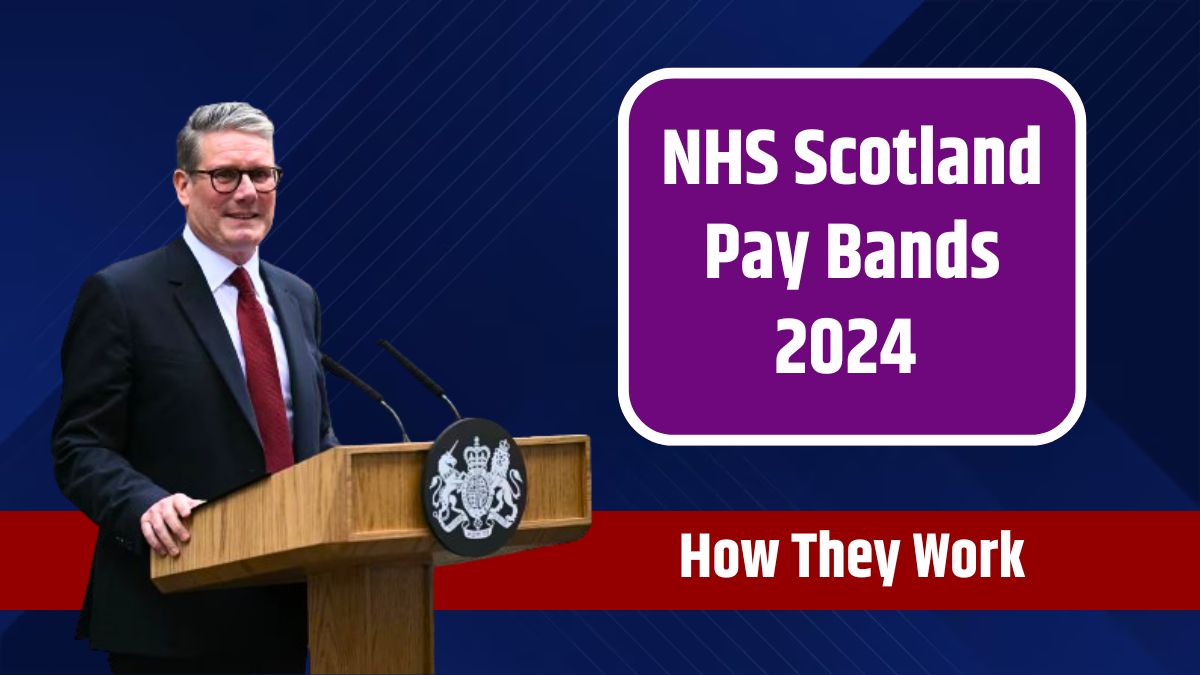If you’re planning a career with NHS Scotland, understanding the 2024 pay band structure and recent salary changes is essential. This guide covers the approved pay increases, the NHS banding system, and what these updates mean for various healthcare roles. Effective April 2024, these changes reflect a strong commitment by the Scottish government to support healthcare professionals with salary raises and one-time payments.
Pay Increases
The Scottish government has approved a significant pay raise for NHS Scotland staff, including a 6.5% salary increase for most employees and a one-time payment. Workers in the lower pay bands will receive at least £1,548, while those in the higher bands (band 8a and above) will receive up to a £3,755 increase. This move is designed to enhance retention and attract new talent to NHS Scotland, especially in critical healthcare roles.
The 2024 pay structure includes both a consolidated pay rise and a one-time non-consolidated payment. Most nurses, paramedics, midwives, and porters will benefit from the 6.5% increase, while additional non-consolidated payments range between £387 and £939, depending on their band.
Pay Band System
NHS Scotland operates a structured banding system that organizes healthcare roles based on skills, responsibilities, and experience. Each position is assigned a pay band that dictates a range of salaries, with nine primary bands (1-9), and higher bands split into sub-levels (8a-d) to better categorize roles according to experience.
| Band | Pay Point | 2024 Salary Offer | % Increase from 2022/23 | One-time Payment |
|---|---|---|---|---|
| 1 | 1 | £23,240 | 7.14% | £387 |
| 2 | 1 | £23,362 | 7.10% | £387 |
| 2 | 2 | £25,368 | 6.50% | £387 |
| 3 | 1 | £25,468 | 6.50% | £389 |
| 3 | 2 | £27,486 | 6.50% | £420 |
| … | … | … | … | … |
| 9 | 2 | £116,428 | 3.33% | £939 |
(Example bands are shown here. Refer to the complete table for full details.)
How Pay Bands Work
The NHS pay bands represent a hierarchy where employees move up the ranks as they acquire skills and experience. This system rewards staff for professional development, additional training, and years of service. Below is a look at typical roles and responsibilities by band:
| Band | Example Roles | Role Description |
|---|---|---|
| 1 | Routine procedure assistants | Carries out basic procedures after initial training. |
| 2 | Healthcare assistant, domestic worker | Manages daily routines and patient assistance. |
| 3 | Emergency care assistant, OT worker | Uses specialized skills in emergency and therapeutic settings. |
| 4 | Assistant practitioner, dental nurse | Completes extensive training for support roles needing clinical knowledge. |
| 5 | Learning disability nurse | Newly qualified roles with expertise in specific fields and complex procedures. |
| 6 | Paramedic, school nurse | Requires specialized skills through education or experience, suited for clinical roles. |
| 7 | High-intensity therapist | Involves high responsibility, needing advanced education and experience. |
| 8 (a-d) | Consultant, strategic management | Covers management and specialized clinical roles requiring significant training and experience. |
Employees can advance within NHS Scotland by pursuing further training and certifications. Each band includes multiple pay points, allowing for incremental salary increases based on performance and experience.
Benefits of the 2024 Pay Increase
The 2024 pay adjustments bring substantial benefits to NHS Scotland employees:
- Competitive Salaries: Staff on the Agenda for Change are among the best-paid healthcare professionals in the UK.
- Support for Recruitment and Retention: Enhanced pay makes NHS Scotland an appealing employer, ensuring workforce sustainability.
- Modernized Pay Structure: The commitment to Agenda for Change ensures the pay structure adapts to meet healthcare needs.
These updates underscore NHS Scotland’s dedication to fair compensation for healthcare professionals and improved working conditions, ultimately leading to better patient care.
Thanks to a £1 billion investment, NHS Scotland salaries will increase by 5.4% to 19.26% over two years. These changes aim to bolster recruitment and retention in critical healthcare roles across the country.
FAQs
What is the NHS Scotland 2024 pay increase?
Most staff will receive a 6.5% raise and a one-time payment.
How does the NHS pay band system work?
Each role is assigned a band, with salaries based on responsibility and experience.
What is the lowest NHS pay band?
Band 1 is the lowest, usually entry-level roles with basic training.
Who benefits from NHS Scotland’s 2024 pay increase?
Nurses, paramedics, porters, and more will see salary boosts.
Are the 2024 NHS pay changes permanent?
The 6.5% raise is permanent, while one-time payments are non-consolidated.
















